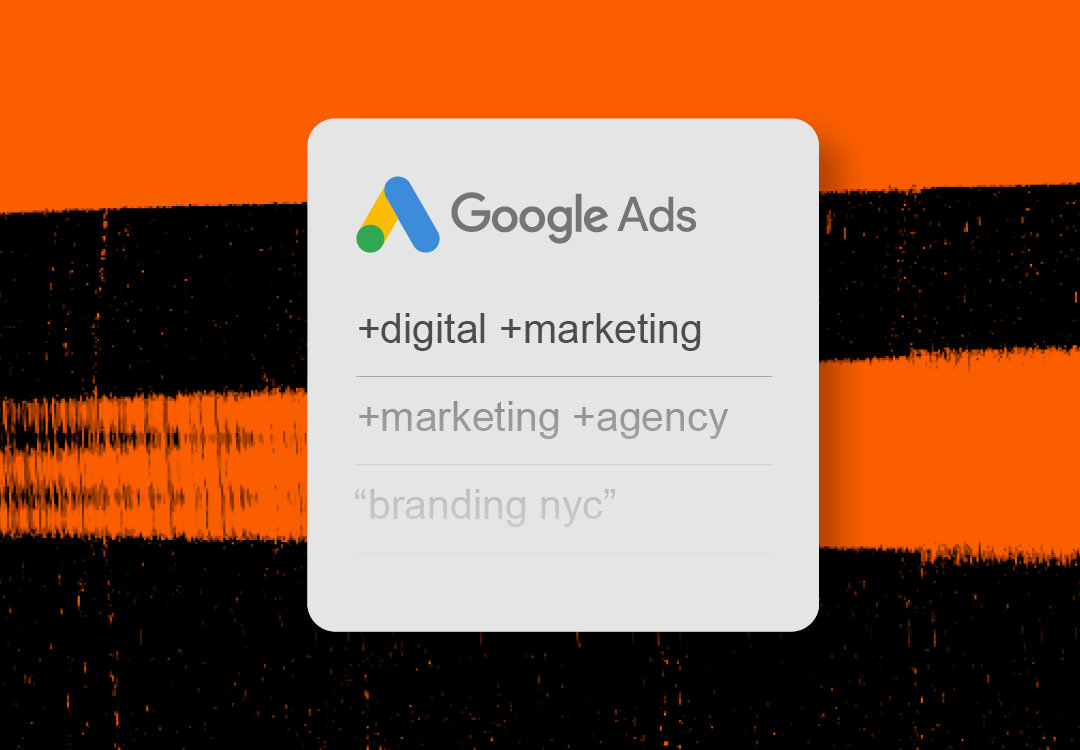Major changes to your Google Ads account
Google has implemented recent major ad changes in 2022 designed to improve Google's ad platform. We'll run down the most important.
Facebook isn’t the only prominent digital advertising platform seeing significant changes in 2021 and beyond. However, unlike Facebook, Google is implementing changes on its own, not because of iOS privacy policies, and they’re designed to improve Google’s ad platform. Let’s run down what we see as the most important changes and what you should expect:

No More Expanded Text Ads
Expanded Text Ads (ETAs) have been the standard ad format in Google Search Ads for as long as many of us can remember, but starting in 2022, they’re going away…sort of.
Responsive Search Ads will soon be the standard text ad format in Google Search Ads, but you won’t need to say goodbye to your most successful ETAs. You’ll be able to keep all your non-removed ETAs as of June 2022, you just won’t be able to add more. This means that your best ETAs will live on!
And importantly, while RSAs, which use machine learning to cycle through a pre-set range of headlines and descriptions to find the best combinations for individual users, are the new ETAs, you will be able to create defacto ETAs by using very limited-selection RSA set-ups. For example, you can pin specific elements of an ad to a particular position, like headlines or descriptions that you want to ensure appear consistently in specific ad locations, instead of relying purely on machine learning rotation.
Modified Phrase Search
As of 2021, Google’s search advertising algorithm started integrating elements of Broad Match Modifier (BMM) into its Phrase Search. Broad Match Modifier keyword targeting allowed users to bid against searches containing any combination of several words, for example, “+digital +marketing +agency” would serve ads on “new york digital marketing agency” or “digital marketing new york agency.” Phrase match used to match non-exact phrases like “moving services NYC to Boston” to cover searches like “affordable moving services NYC to Boston” but will now change, become more liberal in its application, and replace BMM.
The new version of phrase match simplifies things by combining the tight control of phrase match with the expansive reach of broad match modifiers, soon to be discontinued. The new phrase search will be more expansive than its previous iteration and more restrictive than BMM. BMM was a useful alternative to Phrase Search and Broad Match, but Google’s search algorithm has advanced to the point where user search intent can be inferred more accurately and Phrase Search can be used more flexibly and effectively. We recommend using Phrase Search more often, going forwards.

Search Terms Report Changes
Google Ads’ search terms report, which shows the specific queries by users which triggered your ads, has gone through several changes in the past few years. A new development is the ability to see now higher volume searches that triggered impressions that weren’t clicked on. This allows us to set negatives and investigate promising new keyword options preemptively.
Attribution Model Changes
Knowing what ads helped convert your customer is important. For a long time, Google’s default attribution model has been “last click” – the last clicked ad in a customer journey ahead of conversion gets credit for that conversion. There have been other options too, like First Click and Time Decay. Now, the new default model will be Data-Driven Attribution, which looks at all the signals and data available to Google’s algorithm and tries to apportion credit for a conversion to multiple touchpoints. Say a customer sees a Search Ad, is remarketed to with a Display ad, then converts on a branded search ad. The algorithm will try to apportion credit appropriately amongst these different touchpoints. DDA can help demonstrate how search can be used for full-funnel marketing and how some terms, such as generic keywords, may generate incrementally more than branded terms whose value may be overstated by previous last-click models because of long sales cycles.



